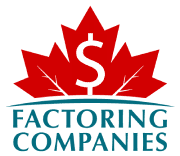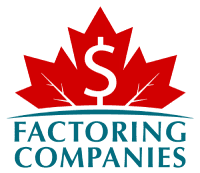
Does the idea of reviewing your factoring deal make you break out in a cold sweat? Not to worry. On this page, we’ll guide you through the common pitfalls of factoring contracts and how to avoid them, so you can feel confident in your choices and structure a deal that truly supports your business needs.
The Basics of Factoring Explained
Factoring is a financial service that allows businesses to sell their accounts receivable (invoices) to a third party, called a factoring company, at a discount. This provides immediate cash flow benefits, making it easier to manage expenses, pay employees, or reinvest in your business. It’s especially popular among businesses that operate on tight cash flow, like trucking companies, manufacturers, and other industries with long payment cycles.
Types of Factoring Arrangements
Whereas most funding solutions are rigid, factoring is flexible, and businesses can tailor their factoring agreement to their needs and goals. While each factoring company provides a unique set of solutions, a few common types of factoring are covered below.
Recourse Factoring
In this arrangement, if your customer doesn’t pay the invoice, you’re responsible for ensuring the factoring company isn’t out of cash, usually by substituting a new invoice in the old one’s place or by repurchasing the invoice. This type of factoring typically has lower fees since the risk is shared. However, ensuring you have reliable customers is crucial because the risk still falls on you.
Non-Recourse Factoring
With non-recourse factoring, the factoring company assumes the risk of non-payment, meaning you’re not responsible if your customer defaults—at least under certain conditions. This option offers peace of mind but comes with higher fees or tighter contract terms, so it’s important to clarify what’s covered. Often, only insolvency-related non-payments are covered, while disputes or service issues might still be your problem.
Spot Factoring
This is a flexible arrangement where you can factor individual invoices as needed rather than committing all your receivables. It’s great if you want more control, but because there’s no long-term commitment, spot factoring can come with higher fees compared to other arrangements.
Whole-Turnover Factoring
In this setup, you agree to factor all your invoices with the factoring company. It can lead to better rates and terms because of the commitment, but it also means you’re locked in, which might not suit every business, especially if your cash flow needs vary month to month.
Why Businesses Choose Factoring
Businesses are drawn to invoice factoring for several reasons, mainly because it offers a practical solution to common cash flow challenges. Let’s break down why it’s such an attractive option.
Immediate Access to Cash
The biggest draw of invoice factoring is the ability to turn your invoices into immediate cash. Instead of waiting weeks or months for your customers to pay, you get paid upfront, which can be a lifesaver when managing daily operations. For businesses with tight margins or seasonal fluctuations, this immediate infusion of cash helps stabilize cash flow, making it easier to cover expenses like payroll, inventory, or unexpected costs.
Easier Approval Compared to Traditional Financing
Factoring is often more accessible than traditional loans or lines of credit because approval is based on the creditworthiness of your customers, not your business’s financial history or credit score. This makes it an appealing option for newer businesses, those with limited credit history, or companies recovering from a rough financial patch. Essentially, if your customers are reliable payers, you’re in a strong position to factor.
Avoiding Debt and Preserving Equity
Unlike loans, factoring isn’t debt. You’re not borrowing money; you’re selling an asset—your receivables. This keeps your balance sheet cleaner and can make your business more attractive to investors or other lenders. Plus, it allows you to access funds without giving up equity or control, something that’s especially valuable for small business owners who want to retain full ownership.
Outsourced Collections and Credit Control
Factoring companies often handle collections and credit checks, saving you time and resources. This is a big plus for small businesses that might not have a dedicated finance team. Knowing that professionals are managing collections can reduce the stress of chasing payments, freeing you up to focus on growth. Plus, some companies appreciate the added layer of credit control, as factoring companies are skilled at assessing the risk of your customers.
Flexibility and Scalability
Factoring grows with your business. As your sales increase, so does your ability to factor more invoices. This scalability makes it an ideal solution for businesses experiencing rapid growth and needing a financing option that can keep up. Unlike a fixed loan, factoring adjusts with your sales volume, making it flexible to your needs.
No Impact on Customer Relationships
Despite what some fear, most reputable factoring companies manage customer interactions professionally, ensuring that your relationships remain intact. They notify your customers of the arrangement, but payments are still made to the factoring company, not directly to you. This often comes as a relief for businesses that worry about customers seeing them as struggling financially—factoring is very common and widely understood in many industries.
Supporting Consistent Cash Flow in Cyclical or Seasonal Industries
For businesses in industries like trucking, manufacturing, or construction, where payment cycles can be irregular, factoring smooths out cash flow peaks and valleys. This stability helps you manage periods of high activity without the stress of delayed payments, enabling you to take on new projects or clients without financial strain.
Quick Turnaround and Simple Process
The process of setting up factoring is relatively quick compared to bank loans. Once you’re onboarded, funding can happen in as little as 24 hours from the submission of an invoice. This speed is crucial when you have urgent expenses or time-sensitive opportunities.
Factoring Contract Pitfalls: Clauses That Make Some Factoring Deals Feel Like a Trap

Now that we’ve covered the basics, let’s explore the specifics of why some factoring deals can feel like a trap, what to watch out for, and how to approach these elements so you’re not caught off guard later. Each point offers a potential red flag, but with the right approach, you can negotiate terms or choose a factoring company that better fits your needs.
Long-Term Contracts with Exit Penalties
Some factoring companies require you to sign long-term contracts, often one to three years, with hefty penalties for early termination. This can feel like you’re locked in, especially if your needs change or you’re unhappy with the service.
With that said, long-term contracts help factoring companies recoup the costs of onboarding, conducting due diligence, and managing your account over time. They invest in your business, so they want assurance of a continued relationship.
If you’re facing a contract with long-term requirements, take heart. Not all factoring companies require long-term commitments. Look for companies that offer month-to-month contracts or are willing to negotiate the exit penalties. Always read the terms carefully and ensure you’re comfortable with the commitment level before signing.
Minimum Volume Requirements
Some agreements stipulate that you must factor a certain amount of invoices each month. If your business has seasonal fluctuations or unexpected slowdowns, you could end up paying penalties or higher fees for not meeting these minimums.
Factoring companies use these requirements to forecast their income and manage their resources effectively. It’s a way to ensure that the relationship remains financially viable for them.
If this is part of your proposed factoring agreement, be upfront about your business’s cash flow patterns during negotiations. Some companies are willing to adjust minimums or offer more flexible terms, especially if you can demonstrate consistent or predictable business cycles.
High Discount Rates and Additional Fees
While the discount rate might seem reasonable at first glance, hidden fees like wire transfer fees, administrative costs, and charges for credit checks can quickly add up, making the cost of factoring much higher than anticipated.
Some factoring companies tack these fees on to cover various operational costs for the factoring company, including managing collections, conducting credit checks, and handling your account. Factoring companies that don’t break out these fees often charge a little more to offset the costs instead.
To avoid being shocked by surprise fees later, always ask for a full breakdown of all potential fees before signing. Compare the effective cost of factoring, not just the advertised rate. Some companies offer all-inclusive pricing models, which can be more transparent and easier to manage.
Recourse vs. Non-Recourse Factoring
Recourse factoring means you’re responsible if a customer doesn’t pay. This can create conflict if you assume the factoring company is taking on all the risk and a customer doesn’t pay their invoice later.
This may not be a major talking point in your discussion with the factoring company because recourse factoring is the standard option. In fact, not all factoring companies offer non-recourse options. Moreover, most businesses opt for recourse factoring when given a choice between the two because non-payment risk is reduced through credit checks, so additional protection is usually unnecessary. Plus, recourse factoring is the least expensive of the two.
To avoid this issue, clarify what type of factoring you’re entering into and what specific risks you’re retaining. If non-recourse factoring is critical for your peace of mind, be prepared for higher fees, and confirm exactly what is and isn’t covered under the “non-recourse” label.
Debtor Concentration Limits
Factoring companies often limit how much of your receivables can come from a single client. If a large portion of your revenue comes from one customer, you might find yourself unable to factor certain invoices or facing higher fees.
Factoring companies have these rules because they limit their risk exposure since having too much reliance on one debtor increases the risk if that debtor defaults.
If you have significant customer concentration, discuss this upfront and see if the factoring company can be flexible or offer adjusted terms. Some companies specialize in industries where client concentration is common and may be more accommodating.
Notification of Assignment and Customer Interaction
Factoring companies notify your customers about the factoring arrangement and may engage with them directly for payments. This can affect customer perceptions and relationships, especially if not handled professionally.
Even still, notification is part of the legal process to ensure payments go directly to the factoring company. It also helps maintain transparency and legal protection for all parties involved.
To avoid issues with this, choose a factoring company known for professional customer interactions and discuss how they will communicate with your clients. Some companies offer non-notification factoring, but it often comes with stricter requirements or higher fees.
Lien or Security Agreements
Factoring companies often require a lien on your receivables, and some even place a blanket lien on all your assets. This can restrict your ability to secure other financing and can feel like your business is being held hostage.
This is somewhat standard because liens protect the factoring company’s investment in your receivables and provide security in case of default.
Before you sign, be sure to understand the scope of the lien being placed and negotiate if possible. Some companies will agree to limit the lien to only the receivables you factor with them, rather than a blanket lien on all assets.
Chargeback Clauses
Even with non-recourse agreements, there can be conditions under which you’re liable for unpaid invoices, such as disputes, customer insolvency, or other specific exclusions.
These chargeback clauses are often necessary because they help factoring companies mitigate their risk, even in non-recourse deals.
Review these clauses carefully and ask for scenarios that might trigger a chargeback. If the conditions seem too broad, negotiate to narrow the terms or opt for a different provider with more favourable terms.
Hidden Fees and Automatic Renewals
Hidden fees can catch you off guard, and automatic renewal clauses can lock you into another term if you miss the cancellation window, making it hard to switch providers.
With that said, renewal clauses are common in many service contracts, allowing the factoring company to retain clients without renegotiating each term. Hidden fees cover costs that aren’t immediately obvious.
If you’re concerned about automatic renewal, set calendar reminders for renewal periods and thoroughly review the fee schedule upfront. Opt for a provider that offers transparency and clear, straightforward terms.
Slow Payer Penalties
Some contracts include penalties if your customers are slow to pay, which can cut into your profits if your clients regularly exceed the expected payment window.
These fees are to be expected, as slow payments impact the factoring company’s cash flow and increase their administrative burden.
Discuss your customers’ payment habits upfront and see if the factoring company can adjust terms or offer flexibility for certain clients. Some may waive these penalties if your overall payment history is strong.
Navigating the Factoring Agreement: Smart Strategies for Factoring

Navigating a factoring agreement can feel overwhelming, especially with all the fine print and complex terms that can significantly impact your business. But with some smart strategies, you can enter a factoring deal confidently and ensure it works in your favour. Here are some key tactics to keep in mind.
Understand Your Cash Flow Needs First
Before you sign any agreement, take a hard look at your cash flow needs. Are you factoring to cover a specific short-term gap, or is this a long-term solution to maintain working capital? Knowing your objectives helps you choose the right type of factoring, whether it’s recourse, non-recourse, or spot factoring, and set realistic expectations for the arrangement.
Compare Factoring Companies Thoroughly
Factoring companies aren’t one-size-fits-all. Some specialize in certain industries or offer more flexible terms, while others may be stricter but provide better rates. Compare at least three companies and pay close attention not just to the rates but also to their reputation, customer service, and willingness to negotiate terms. Look for reviews or ask for references from businesses similar to yours to get a sense of their experience. Pay attention to organizations the factor belongs to, such as the International Factoring Association (IFA), as this means they’re voluntarily holding themselves to higher standards.
Scrutinize the Fee Structure
The advertised discount rate is just one piece of the puzzle. Make sure you understand all the fees involved, including administrative fees, wire transfer charges, and any penalties for slow-paying customers. Request a full breakdown of costs and ask for examples of scenarios that might trigger extra charges. Some companies might be willing to adjust or waive certain fees if you ask, so it’s always worth negotiating.
Negotiate Minimum Volume Requirements and Contract Length
If the agreement includes minimum volume requirements or long-term commitments, don’t hesitate to negotiate. Explain your business’s cash flow cycles and ask if they can offer more flexibility, especially if your revenue is seasonal or unpredictable. Month-to-month contracts are available with some factoring companies, or you can negotiate lower penalties for early exit if you’re locked into a longer-term deal.
Get Clarity on Recourse vs. Non-Recourse Terms
Many businesses assume that non-recourse factoring means no risk, but that’s not always the case. Non-recourse often only covers insolvency-related non-payments and doesn’t protect you from disputes or other issues. Be sure to ask exactly what’s covered under non-recourse terms and look closely at any chargeback clauses. If risk mitigation is a top priority, ensure the factoring company’s non-recourse terms align with your needs.
Review the Notification and Customer Interaction Policies
Factoring involves notifying your customers about the arrangement, but how this is handled can vary widely. Some factoring companies are discreet and professional, maintaining the integrity of your customer relationships, while others may be more intrusive. Ask about their approach to customer interaction and, if necessary, request that the factoring company keep communications to a minimum.
Watch Out for Automatic Renewals and Know Your Exit Strategy
Many factoring contracts include automatic renewals, which can be easy to overlook. Set calendar reminders for the end of your contract term so you can review your options and renegotiate if needed. Knowing your exit strategy upfront will prevent you from getting stuck in an unwanted renewal. If possible, try to negotiate a shorter renewal window or more flexible exit terms when you first sign.
Protect Yourself with Clear Chargeback Clauses
Chargeback clauses can be a major pain point, especially if they’re broad or poorly defined. Make sure these clauses are specific and transparent, detailing under what circumstances you might be responsible for unpaid invoices. If anything seems vague, ask for clarification or seek adjustments to better protect your business.
Ask for a Sample Statement of Account
Before committing, ask the factoring company for a sample account statement. This will show you exactly how they present their fees, chargebacks, and payment timelines, allowing you to spot potential red flags before they become an issue. A clear, easy-to-understand statement can be a good sign of transparency and professionalism.
Consult with a Legal or Financial Advisor
Factoring agreements are complex legal documents, and having a second set of eyes can help you catch nuances you might miss. Consulting with a legal or financial advisor who understands factoring can save you from costly mistakes and ensure the terms are truly in your best interest. They can also help you negotiate better terms based on industry standards.
Test the Factoring Company with a Small Batch of Invoices First
If possible, test the waters by factoring a small batch of invoices initially. This lets you gauge the company’s service, response times, and overall process without fully committing. If the experience goes smoothly, you can proceed with a larger volume, knowing exactly what to expect.
Get Matched with a Reputable Factoring Company
While it’s important to understand the terms involved in a typical factoring arrangement to ensure your contract meets your needs now and will adapt as your company grows, a reputable factoring company will help ensure you understand the contract before you sign. To be matched with a factoring company that has a strong track record for success, request a complimentary rate quote.
FAQs on Factoring Contract Pitfalls
How does factoring affect business liquidity?
Factoring can significantly improve business liquidity by providing immediate cash for your invoices, helping you cover expenses and manage cash flow without waiting for customer payments.
What are the main differences between bank loans vs. factoring?
The key difference between bank loans vs. factoring lies in how funds are accessed and repaid. Loans add debt to your balance sheet, while factoring provides immediate cash from your invoices without additional borrowing.
Are there alternatives to factoring for small businesses?
Yes, factoring alternatives include business lines of credit, merchant cash advances, and invoice financing, each with pros and cons, depending on your business needs.
How can I negotiate better terms in a factoring agreement?
Negotiating better terms involves understanding all fees, asking for flexibility in contract lengths, and ensuring clarity on recourse vs. non-recourse terms. Don’t hesitate to shop around and compare offers.
What should I look for in a factoring contract before signing?
Key things to look for include contract length, minimum volume requirements, fees, and customer interaction policies. Understanding these terms helps prevent unwelcome surprises later.
How does recourse factoring differ from non-recourse factoring?
In recourse factoring, your business is responsible if a customer doesn’t pay, while non-recourse shifts that risk to the factoring company under certain conditions. Knowing the difference helps you choose the right option.
Is factoring worth it for small businesses?
Factoring can be worth it if your business needs immediate cash flow and you work with a reliable factoring company. However, it’s crucial to weigh the costs and terms to ensure it aligns with your business goals.
What are the risks of using factoring services?
Risks include potential hidden fees, impact on customer relationships, and the possibility of being locked into unfavorable long-term contracts. Understanding these risks helps you make an informed decision.
How can I exit a factoring deal if it's not working for my business?
Exiting a factoring deal involves understanding your contract’s termination clauses, negotiating with the factoring company, and having a backup financing plan to ensure your business continues to operate smoothly.

About Factoring Companies Canada
Related Insights
Get an instant factoring estimate
Factoring results estimation is based on the total dollar value of your invoices.
The actual rates may differ.
CLAIM YOUR FREE FACTORING QUOTE TODAY!
PREFER TO TALK?
You can reach us at
1-866-477-1778
Get an instant factoring estimate
Factoring results estimation is based on the total dollar value of your invoices.
The actual rates may differ.
CLAIM YOUR FREE FACTORING QUOTE TODAY!
PREFER TO TALK? You can reach us at 1-866-477-1778











